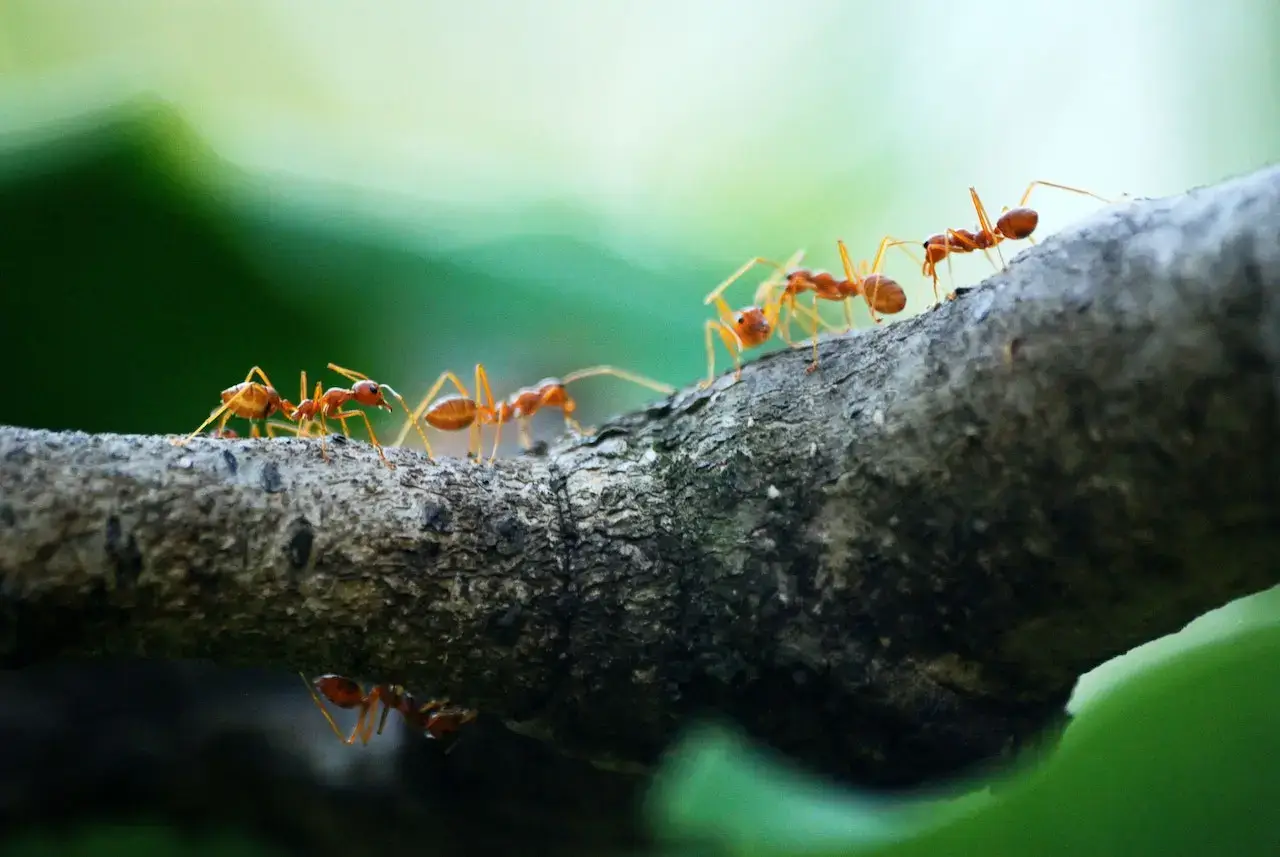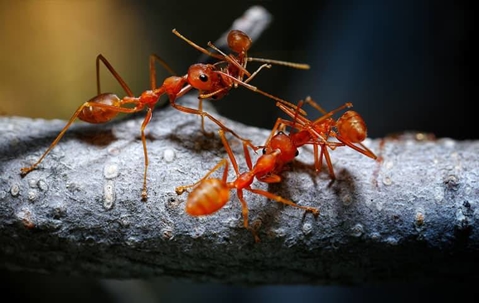Leading Ant Control Services: Dependable Solutions for Your Home or Organization
Wiki Article
Ecological Effect of Bug Control: Balancing Efficiency With Sustainability
The ecological influence of insect control is an essential issue that needs a fragile equilibrium between achieving performance in handling pests and making certain sustainability of our ecological communities. From the usage of hazardous chemicals that permeate into our soil and water to the unexpected effects on non-target species, the consequences of standard parasite control practices are significant.Unsafe Chemicals in Parasite Control
The utilization of unsafe chemicals in parasite control positions significant environmental and health dangers that necessitate cautious consideration and mitigation methods. Herbicides, insecticides, and pesticides are generally made use of to get rid of bugs, however their prevalent application can result in unplanned effects. These chemicals can contaminate soil, water resources, and the air, impacting not only the targeted pests yet likewise beneficial insects, wild animals, and human beings.
To attend to these risks, integrated parasite administration (IPM) methods are being advertised as an extra lasting choice. IPM entails a combination of methods such as biological control, environment adjustment, and the targeted use of chemicals as a last option (ant control high point nc). By taking on an alternative method to pest control, we can lessen the environmental and health and wellness impacts connected with harmful chemicals while successfully managing pest populations
Effect on Non-Target Variety
Considering the unintended effects of bug control techniques, the influence on non-target species is a critical facet that calls for thorough analysis. While insect control procedures aim to target certain parasites, other microorganisms in the community might be unintentionally affected. Non-target types, consisting of valuable bugs, birds, creatures, and even plants, can experience indirect or direct injury from pesticide applications or organic control techniques.Chemicals can have sub-lethal or lethal effects on non-target varieties. For instance, insecticides developed to combat a specific bug pest might harm pollinators like or natural killers such as ladybugs. Additionally, chemical deposits can accumulate in the atmosphere, impacting non-target microorganisms gradually. Likewise, organic control agents, if not species-specific, can pose dangers to unintended targets, disrupting the eco-friendly equilibrium.
To alleviate the effect on non-target varieties, incorporated pest administration (IPM) methods that highlight an alternative strategy to pest control are recommended. These methods prioritize the use of eco friendly techniques, lessening injury to beneficial microorganisms while properly handling pest populations. Performing thorough danger analyses and checking the end results of insect control initiatives are necessary action in guarding non-target types and promoting overall ecological community health.
Soil and Water Contamination
Unexpected environmental repercussions of pest control techniques expand past impacting non-target varieties, with significant implications for soil and water contamination - termite control services. Chemicals, herbicides, and chemical plant foods utilized in pest control can seep into the dirt and infect groundwater, posing a hazard to both earthbound and marine ecosystems.Water contamination is another crucial concern linked with pest control methods. To alleviate dirt and water contamination from pest control tasks, incorporated insect management techniques that prioritize sustainability and reduce chemical inputs are crucial.
Air Pollution From Pesticide Use
Exposure to airborne chemicals during farming applications poses a considerable issue for air pollution control look at here now measures. Additionally, chemical drift, where chemicals are carried by the wind to unplanned locations, can lead to the contamination of close-by ecosystems and water bodies.
Methods for Sustainable Pest Control
In the realm of farming practices, executing sustainable insect control methods is critical for preserving environmental balance and securing crop yields. Lasting pest control emphasizes using eco-friendly methods to manage pest populaces efficiently while lessening damage to non-target microorganisms and ecological communities. Integrated Parasite Management (IPM) is an extensively embraced approach that incorporates organic, cultural, physical, and chemical control approaches to achieve long-lasting pest monitoring remedies.One trick approach in sustainable pest control is advertising biodiversity within agroecosystems. By improving all-natural opponents of insects, such as parasitoids and predators, farmers can minimize the need for synthetic chemicals. Plant rotation and diversification are also efficient strategies to disrupt pest life cycles and create much less favorable problems for bugs to thrive. Furthermore, making use of pest-resistant crop varieties and employing methods like trap chopping can aid minimize bug stress without relying greatly on chemical interventions. Eventually, by incorporating these sustainable pest control approaches, farmers can accomplish a balance in between pest management effectiveness and ecological stewardship.
Conclusion
In verdict, the environmental impact of parasite control approaches must be thoroughly considered to balance performance with sustainability. Damaging chemicals used in insect control can bring about soil and water contamination, air pollution, and damage non-target varieties - ant control services. It is crucial to carry out lasting bug control techniques to decrease these unfavorable results on the atmosphere and advertise a much healthier ecosystem for future generationsBy taking on a holistic strategy to pest control, we can decrease the ecological and wellness effects connected with unsafe chemicals while effectively handling pest populations.

To alleviate the air pollution triggered by chemical use, it is essential to take on integrated parasite administration techniques that focus on the use of non-chemical pest control approaches, such as plant rotation, natural killers, and immune plant varieties. Sustainable insect control highlights the use of environmentally friendly methods to take care of parasite populations efficiently while lessening damage to non-target microorganisms and ecosystems. Integrated Bug Management (IPM) is a widely adopted strategy that incorporates organic, social, physical, and chemical control approaches to attain lasting insect administration services.
Report this wiki page